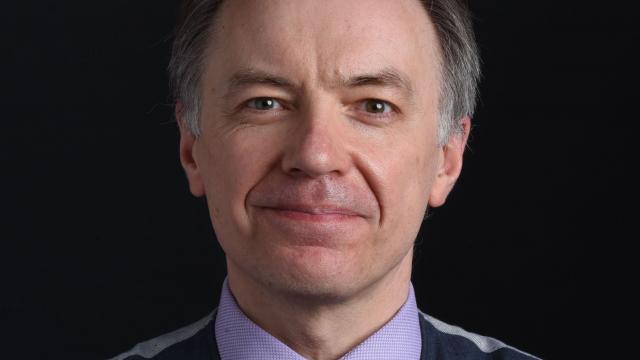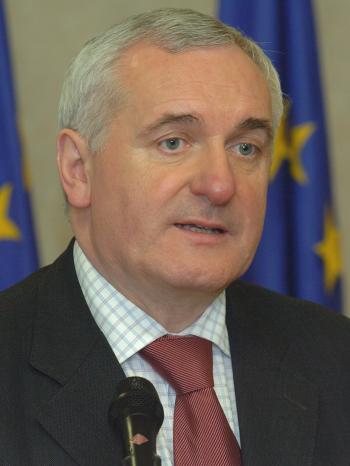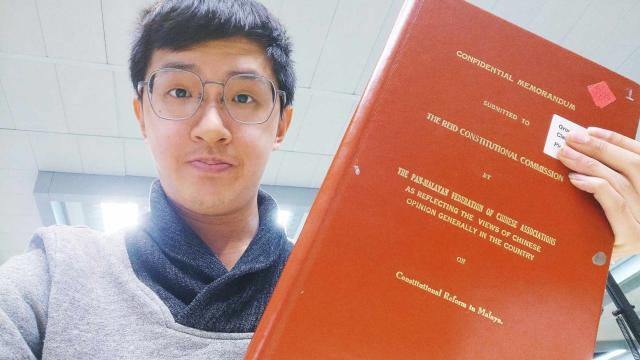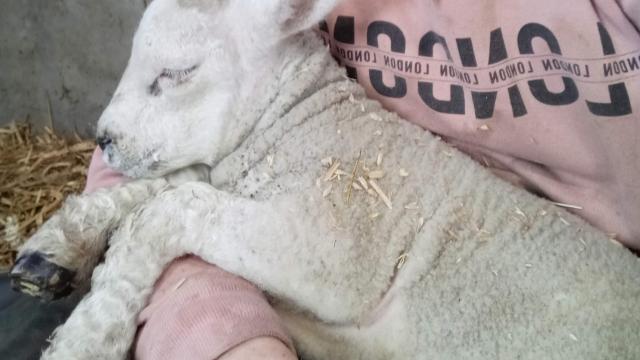
British-Irish relations, past, present and future
The IoI team and Lisa Whitten, Research Fellow at Queen's University Belfast, talk to former Taoiseach and one of the architects of the Good Friday Agreement, Bertie Ahern, about the history of relations on the island of Ireland since partition, the state of relations presently following the Good Friday Agreement and Brexit, and what lies in store for the island’s future. Did the Good Friday Agreement achieve what it set out to do? What role does leadership play in diplomatic relations? How much does the generational shift matter in Irish and Northern Irish politics? We also tackle the thorny issue with the Northern Ireland Protocol – is a solution that pleases all parties possible?
Scroll down to discover
- Executive summary
- About the speaker and discussant
- Watch the conversation (NB poor video quality from Ahern's end)
- What was said?
Executive summary
Bertie Ahern (Taoiseach 1997-2008, Fianna Fail) talks to the series amidst tense political debate on the Northern Irish Protocol and the post-Brexit trade deal. As former Taoiseach and a key contributor to the Good Friday Agreement, he offers his perspective on the state of relations between the Republic and Britain, and the Republic and Northern Ireland, past, present, and future.
- Ahern briefly recounts a century of diplomatic history between Dublin, Belfast, and Westminster following the partition of the island in 1921. Initial separation and apathy to one another turned into strained relations in the late 1960s with the outbreak of the Troubles. Following the UK and the Republic joining the European Community in 1973, he claims relations eased and remained co-operative for many years. Brexit saw an end to this period of relative harmony and cooperation.
- Emerging from Covid, Ahern is hopeful for the economic success of the island as a whole, as all involved benefit from improved cooperation. There is still much to do, he thinks, in delivering the vision of the Good Friday Agreement, noting the continued presence of sectarianism (albeit not overtly violent), the issues surrounding legacies of the Troubles, and segregated education systems.
- Reflecting on the political climate of the 1990s, Ahern considers himself lucky that there was such a wealth of skilled and formidable politicians determined to work together, sometimes to the detriment of their own careers, to bring together the Good Friday Agreement. He particularly mourns today’s relationships between Dublin, Belfast, and London where a sense of mutual trust and cordiality has fragmented.
- On the Northern Irish Protocol, Ahern dismisses the idea of a referendum on the issue and is cautious of political parties turning it into a partisan issue, but remains hopeful that there is a solution that can satisfy both the EU and the UK, as well as all communities in Northern Ireland. This is dependent, however, on goodwill on all sides.
About the speaker
Bertie Ahern was first elected to the Dáil (Parliament) in 1977. He was Minister for Labour from March 1987 to November 1991 and was appointed Minister for Finance on three separate occasions from November 1991 to December 1994. He has served as Tánaiste (Deputy Prime Minister), Minister for Arts, Culture & the Gaeltacht and Minister for Industry and Commerce at various stages. His first ministerial appointment was as Government Chief Whip and Minister of State at the Department of the Taoiseach and at the Department for Defense in 1982. Bertie Ahern was a member of Dublin City Council from 1978 to 1988 and had the honor of serving as Lord Mayor of Dublin from 1986 to 1987. In November 1994 he was elected leader of his party Fianna Fáil and served as Leader of the Opposition from then until June 1997. He was first elected Taoiseach (Prime Minister) in June 1997, he was re-elected in June 2002 and again in May 2007. In 1997 Bertie Ahern received widespread praise for his political skills in ensuring that this administration served its full five-year term and delivered on real political and economic progress for the Irish people. The defining moment of this period and a defining moment in Irish history was the successful negotiation by Bertie Ahern and Tony Blair of the Good Friday Agreement between the British and Irish Governments and the political parties in Northern Ireland in April 1998. He was re-elected Taoiseach (Prime Minister) in June 2002. These years were a period of unprecedented economic growth and social change in Ireland. It was also a period of continuing and intense engagement with the Northern Ireland peace process. On 8th May 2007 those years of work paid a rich dividend when a power-sharing administration was established in Northern Ireland. After nine years of unstinting political commitment, this historic event represented the full implementation of the Good Friday Agreement and a great triumph for all involved.
About the discussant
Dr. Lisa Whitten (Queen’s University Belfast) is a Research Fellow at Queen's University Belfast and participant in a major ESRC-funded project looking at the long-term impact of Brexit and the Protocol on Ireland/Northern Ireland on the region. She has previously worked in the UK parliament and the Office of the Northern Ireland Executive in Brussels.
Watch the conversation
What was said?
Bertie Ahern began his talk on the history of the island of Ireland since partition in 1920. The separation of the island led the two countries into “different futures” and between the 1920s and 1960s the two jurisdictions had little to do with each other, particularly in terms of political contact. Relations between Dublin and Belfast were “hostile”, a fact made much worse by the outbreak of the Troubles in the late 1960s. Ahern then skipped forward to discuss the Good Friday Agreement, which he was instrumental in bringing about. From his perspective, the Agreement had three main aims: to stop killing and mayhem, to set up new institutions where Northern Ireland would work into the future, and to try and bring people on the island together. The first aim was achieved, the second two have had mixed success in his view.
He then turned to the present. Although he thinks that “Brexit has not helped things”, the economies in the north and south are good and there has been increased cooperation. There is still far more to be done, however. The “great success” of the economy in the Republic can be built on so the island economy is stronger; there are still many gaps in delivering the vision of the Good Friday Agreement – he mentions the continued existence of segregated education systems and sectarianism, as well as legacies of the past remaining an issue.
Eugenio Biagini began the discussion by asking “is there any space for a referendum on the Northern Ireland Protocol?”. Lisa Whitten pointed out that this question came up when Boris Johnson took office. She explained that there is a provision for votes in the Northern Ireland Act on certain aspects of the protocol, theoretically meaning there is space for a consent-style vote. She also explained, however, that Northern Ireland doesn’t have the same tradition of referenda as the Republic does. There are currently early conversations going on about Citizen’s Assemblies, with pilot ones running on the border poll and social care reform. For Bertie, his concern would be a referendum turning into a partisan vote and not being on the actual question on the ballot. Although the protocol has changed many times, the core issue remains: how can a land border be avoided?
Barry Colfer asked “why are Irish-Anglo relations different to the 1990s?” and “how important was EU membership in the 1990s to habits of cooperation leading up to the Good Friday Agreement?”. Bernie highlighted that relationships between the Irish and British governments improved “radically” in 1973 when both countries joined the European Community. The common-law system meant Ireland and Britain were compatible on most of the main issues. The officials at the civil service level had a really good relationship. He argued that what is sad about Brexit is that Irish and British officials don’t meet any more and personal dynamics have ended. He described relations under Theresa May’s premiership as “cordial” but recent times have seen relations go “down the tubes”. Bertie reflected that in the 1990s they were “very lucky” to have the quality of people around that they did. The likes of John Hume and Mo Mowlam made up a generation of skilled political individuals and they were surrounded by “formidable characters” on all sides.
Lisa asked what the impact of Irish-British relations could be on Northern Ireland’s stability and how long term could the implications be? Bertie argued that “the big issue is trust” and that diplomacy is important. People may have differences but they need to articulate their case in a civilised manner. Once trust goes, and politics descends into mirrors and daggers, it becomes unhelpful. He personally dislikes when either side descends into having a go at the other. For Bernie, Brexit didn’t consider Ireland as part of the equation and for the past five years, relations have been on the decline. Can this be turned around? A deep sense of mistrust has to be healed on both sides.
Questions from the audience started with “Do you think the Good Friday Agreement has been successful and if you could, would you change anything about the Good Friday Agreement and its substance?”. Bernie responded that the Agreement “pushed a whole lot of issues together”. Both he and Tony Blair agreed together it should be as comprehensive and multifaceted as possible. Many of these solutions weren’t perfect, but on the whole they were good attempts. He named decommissioning of arms as a specific issue that he would change, as it caused many political casualties and dragged the peace process on for many years. Sectarianism and legacy issues are nowhere near fixed. In terms of peace, stability, and the economy, the Agreement was very successful. But there are other aspects which aren’t so much.
Professor Mary Daly from University College Dublin commented on the sense that the Irish government never developed a close relationship with the Northern Ireland Office and preferred to work with Westminster or Northern Ireland’s politicians. Would Bernie agree with this characterisation? He agreed – in his own time they dealt with Number 10 rather than the Northern Ireland Office. When they function, he thinks that the North-South bodies have improved that a “great deal”, but he doesn’t have first-hand experience in this. Professor Daly also asked whether President Michael D. Higgins was right to miss the Northern Ireland centenary service held at Armagh? Bernie didn’t want to comment on the particular situation but did say that as Taoiseach, he worked with the Orange community in Northern Ireland to secure the Battle of the Boyne site and that he had thought it a “good act of reconciliation”. In 1999 he also held a state reception with the Dublin Fusiliers. “These acts of reconciliation are very important” and he supports “anyone holding out the hand of friendship.”
Two final questions focused on the future. Is there a solution on the Northern Ireland Protocol that would satisfy both sides in Northern Ireland, the EU, and Britain? Bernie thinks so, if there’s “goodwill” and a desire to find a solution. Lisa thought that whilst there probably is a middle-ground that Britain and the EU agree on, the difficult question is how that is “sold” by politicians to Northern Ireland. A technical issue prevented Bernie from finishing the seminar, but in his absence reflected on the fact that most speakers on this seminar are from older generations and asked Lisa how much does the generational shift really matter? Lisa responded that it was difficult thing to quantify. She personally is “very hopeful” when thinking about the future of Northern Ireland, partly because, looking at the way people identify, there is a growing category in the population who don’t identify as either unionist or nationalist to a strong degree. Much of the conflict on the island has been fuelled by a fear that identity was under threat, so Lisa thinks that the more that space can open up to allow for more multiplicities of identities, the easier it will be to talk about ‘normal’ political issues like infrastructure, the environment, or the economy. She suggested that a “silver-lining” to Northern Ireland’s “starring role” in Brexit has been a forced focus on those sorts of issues. North-South relations have had to be seen not as a political issue, but as something that affects day-to-day living. This has built a strong momentum into making living together work.
Eugenio closed the seminar with a reflection that one way forward for the island of Ireland would be to separate completely the question of identity from specific negotiations about the position of Northern Ireland within the EU and the UK. Separating the politics from the practicalities of running the economy may make many of the other questions more tractable.




